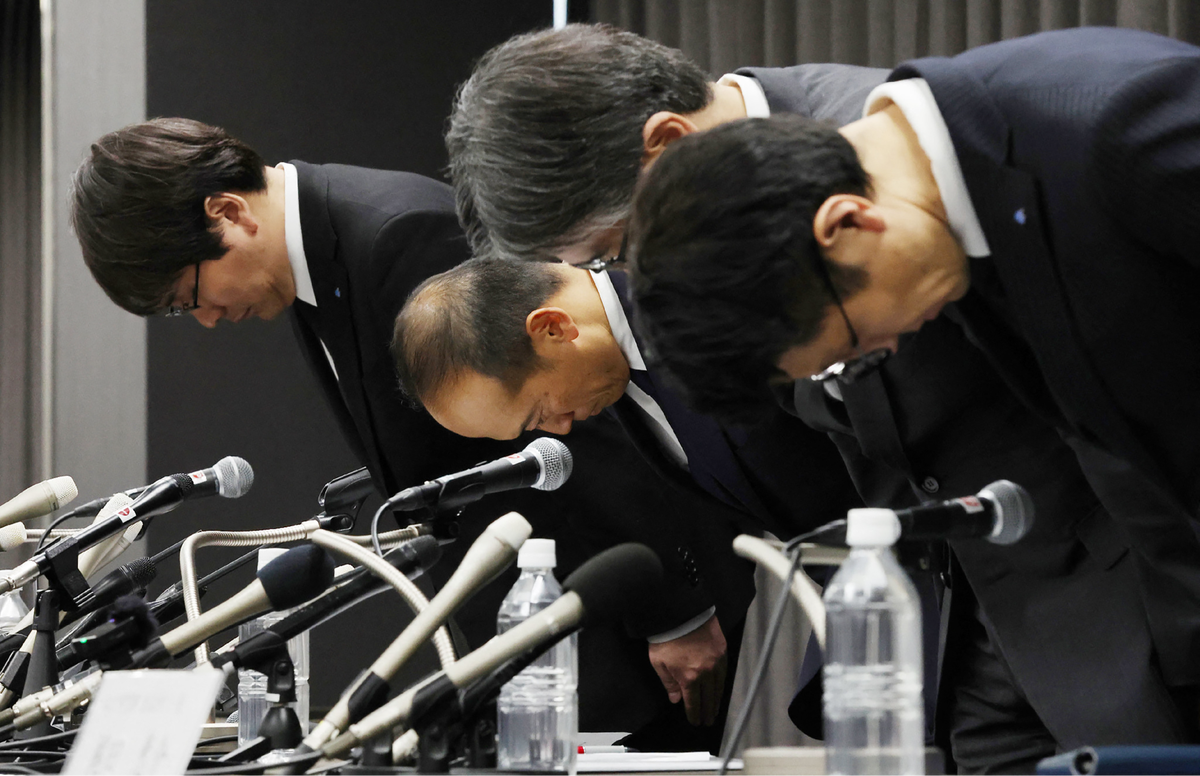Five dead and 100 in hospital in Japanese health supplement scandal

Five people have died and more than 100 are in hospital in Japan after a range of health supplements were recalled by the firm that made them.
The Osaka-based Kobayashi Pharmaceutical Company came under fire for not going public with problems it had known about since January until March 22.
Company officials said 114 people were being treated in hospitals after taking products, including Benikoji Choleste Help meant to lower cholesterol, that contain a speciaes of red mould called benikoji.
Some people developed kidney problems after taking the supplements, but the exact cause was still under investigation in cooperation with government laboratories, according to the manufacturer.
“We apologize deeply,” President Akihiro Kobayashi told reporters on Friday, bowing for a long time to emphasize the apology alongside three other top company officials.
He expressed remorse to those who have died and been ill and to their families. He also apologized for the troubles caused to the entire health food industry and the medical profession, adding the company was working to prevent further damage and improve crisis management.
The company’s products have been recalled — as have dozens of other products that contain benikoji, including miso paste, crackers and a vinegar dressing. Japan's health ministry put up a list on its official site of all the recalled products, including some that use benikoji for food colouring.
The ministry warned there could be more deaths as the supplements could be bought at drug stores without a prescription and some may have been bought or taken out of the country by tourists who may not be aware of the health risks.
Some analysts have blamed recent deregulation initiatives, which simplified and sped up approval for health products to spur economic growth, for the scandal.

 Yahoo News
Yahoo News 
